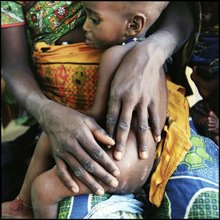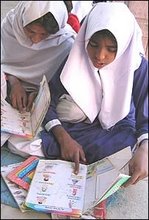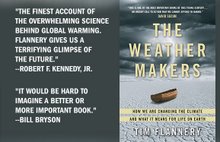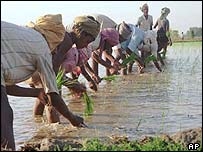PREAMBLE
According to the Universal Declaration of Human Rights, public health measures and access to medical care constitute a human right, as stated in Article 25 (1):
Everyone has the right to a standard of living adequate for the health and well-being of himself and of his family, including food, clothing, housing and medical care and necessary social services, and the right to security in the event of unemployment, sickness, disability, widowhood, old age or other lack of livelihood in circumstances beyond his control.
Reference: The Universal Declaration of Human Rights, 1948. http://www.un.org/en/documents/udhr/
In this issue we draw attention to how China is persecuting a man following his advocacy on behalf of public health, especially the health of children.
THE STORY
A Chinese man who organized a support group for fellow parents of children sickened in one of the country's worst food safety scandals was found guilty of inciting social disorder and sentenced on November 10, 2010 to 2 1/2 years in prison.
According to an Associated Press report of that date, “Zhao Lianhai had pushed for greater official accountability and compensation for victims and their families after the 2008 scandal that shocked China. His sentence (is) particularly severe because the case related to a public safety incident that the embarrassed leadership had pledged to tackle in a bid to restore consumer confidence.”
In 2008, six children died and nearly 300,000 were sickened by baby formula tainted with melamine, which can cause kidney stones and kidney failure. The industrial chemical, used in the manufacture of plastics and fertilizer, was added to watered-down milk to increase profits and fool inspectors testing for protein. Several dairy industry figures were prosecuted and punished, including three people sentenced to death. The epidemic of toxic renal disease itself also spread to numerous other countries through the export of dairy products, thus defining this as a threat to the health of children around the world.
However, prosecutors subsequently leveled three charges against Zhao Lianhai: That he organized a gathering of a dozen parents of sick children at a restaurant, held a paper sign in front of a court and factory involved in the scandal as a protest, and gave media interviews in a public place. According to his lawyer, “the court wouldn't receive our evidence and testimony and even wouldn't allow our witnesses to speak”. Thereby found “guilty”, his sentence is being condemned in China by those with the courage to speak up, and around the world.
Amnesty International states: "We are appalled that the authorities have imprisoned a man the Chinese public rightly view as a protector of children, not a criminal," said Catherine Baber, Amnesty’s Asia-Pacific deputy director.
Because Zhao Lianhai was in effect upholding The Universal Declaration of Human Rights 1948, Article 25 (1), cited above, within which the World Health Organization (in part) operates, it is our view that the Director General of WHO, Dr Margaret Chan, should convey concern directly to the relevant Chinese government authorities regarding the persecution of this public health advocate.
China clearly has made a serious mistake in this instance, both in terms of public health and universal human rights. By so doing, it is suppressing the tradition of advocacy on which public health measures around the world owe their origin. Everyone expects better from China today: at this point in its history, when it is emerging as an economic power, not to reverse this punitive legal decision at a higher level will illustrate to the world that China is far from ready to lead in matters of public health, let alone human rights.
Reference: Associated Press November 10, 2010. Chinese father punished for food safety activism. http://www.google.com/hostednews/ap/article/ALeqM5jaj3zrfNc_Bfr6sI5q43ycIBD1pQ?docId=62d9798ca29a4cd4b26fadfdc5206d58
THE ISSUE IN GLOBAL PUBLIC HEALTH PERSPECTIVE
For additional perspective on China’s outmoded, corrupt and vindictive approach to public health advocacy, we extract the following item from Human Rights Watch.
Chinese Corruption Is Hazardous to Your Health - Local officials often prioritize economic gain at the expense of public health. By Joe Amon, Health and Human Rights Director. Published in: Asia Wall Street Journal. May 13, 2010
"At the end of March (2010), a Chinese newspaper reported that four children died and many more fell ill in Shanxi province after receiving vaccines that were not properly stored. The heat-sensitive vaccines had been taken out of air-conditioned rooms because government labels-required to show that the vaccines had been bought from official suppliers at inflated prices-would not adhere to cold vials. The result? An untold number of children are now vulnerable to polio and other diseases.
Instead of investigating the matter, local health officials denied the story as "basically untrue," threatened outraged parents and prevented them from seeking help from higher authorities. The whistleblower, an employee of the Shanxi Center for Disease Control and Prevention, was demoted.
Covering up corruption and official mismanagement in health care is a common response among Chinese officials. That's despite government promises that lessons were learned in 2008, when producers of baby formula discovered it was cheaper to poison infants than sell authentic formula. Thousands of babies became sick from ingesting milk tainted with melamine-an industrial product more commonly used to make plastics.
Like the tainted vaccines, the melamine scandal is a story about local officials sacrificing the health of Chinese citizens to make a profit. Factories that produced the tainted milk were able to slide through the regulation pipeline by partnering with local government officials. And when children became sick, the local government's response was to threaten and arrest parents rather than offer help to the sick children.
This month the Chinese government announced a new set of health-care priorities. These goals include strengthening the rural health insurance system and raising production standards for pharmaceuticals. But the government's health-care wish list ignores the corruption, greed and mismanagement that are key barriers to providing essential medical care. These issues are clearly illustrated in what will likely be the next big scandal, brewing on an even larger scale.
Industrial pollution is causing heavy-metal poisoning in almost every corner of the country. Local government officials in the cities where the poisoning occurs deny and cover up the health consequences rather than providing help for thousands of adults and children suffering from lead poisoning. In one village, local officials prevented a bus carrying parents seeking medical help from reaching the hospital in a nearby town.
Perhaps most troubling are consistent accounts that hospitals have been paid to withhold or give false results for children who are tested for lead poisoning. Many of these children have serious neurological and developmental problems, but treatment and sustained medical care have been practically nonexistent.
Medical care for victims of industrial pollution is guaranteed under the Chinese constitution, yet victims' care has apparently taken a backseat to the protection of local officials with a financial stake in the polluting factories. In Fengxiang, Shaanxi province, where thousands of children have lead poisoning, local officials demonstrated their priorities by allowing the polluting factory to re-open, with no change in its operations.
The Chinese government has laws on the books designed to tackle corruption and protect the health of the Chinese population, but these laws lack an enforcement mechanism to ensure accountability. It's no surprise then that local officials prioritize economic gain at the expense of public health. Penalizing corruption and rewarding local officials for improvements in public health should be recognized as a critical part of legal and health-care reform.
In a globalized world, the effects of cover-ups by corrupt officials are felt far from China's borders. Melamine-tainted dairy products from China were found in countries all over the world. In February, three Chinese babies headed to the U.S. for adoption were rushed to the hospital with extremely high levels of lead in their blood. From fake cough syrup killing children in Panama to toys coated in lead harming children in the U.S., the cases exposed by the free media outside China suggest that we all face hidden risks."
Source: Amon J. Human Rights Watch. Chinese Corruption Is Hazardous to Your Health - Local officials often prioritize economic gain at the expense of public health. Published in: Asia Wall Street Journal. May 13, 2010
http://www.hrw.org/en/news/2010/05/13/chinese-corruption-hazardous-your-health
FROM a Great Canadian and World Statesman
"A great gulf... has... opened between man's material advance and his social and moral progress, a gulf in which he may one day be lost if it is not closed or narrowed..."
Lester B Pearson
http://nobelprize.org/nobel_prizes/peace/laureates/1957/pearson-lecture.html
INSPIRATIONAL WELCOME ............................... from T.S.Eliot's "Little Gidding"
If you came this way From the place you would come from... It would be the same at the end of the journey...
If you came, not knowing what you came for, It would be the same... And what you thought you came for Is only a shell, a husk of meaning... From which the purpose breaks only when it is fulfilled If at all.


























